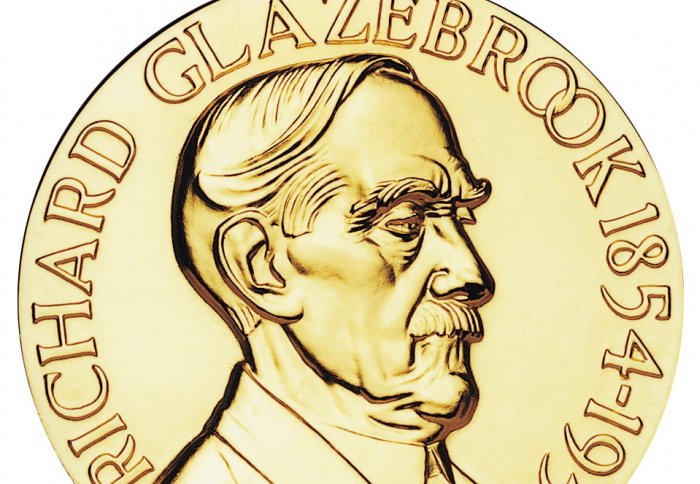Two Institute of Physics medals for Imperial

Institute of Physics has recognised Jim Virdee for his leadership of the CMS experiment at CERN and Edmund Kelleher for his work on lasers.
Professor Sir Tejinder (Jim) Virdee has been awarded the Glazebrook Medal and prize, in recognition of his leadership of the Compact Muon Solenoid (CMS) experiment at the Large Hadron Collider (LHC) at CERN.
 Virdee is Professor of Physics at Imperial and in 2012 he celebrated 30 years at the College. He was also elected Fellow of the Royal Society in 2012 and was knighted in the Queen's Birthday Honours in 2014. He has been referred to as one of the 'founding fathers' of the CMS project which, along with the ATLAS experiment, announced the discovery of a Higgs boson in July 2012.
Virdee is Professor of Physics at Imperial and in 2012 he celebrated 30 years at the College. He was also elected Fellow of the Royal Society in 2012 and was knighted in the Queen's Birthday Honours in 2014. He has been referred to as one of the 'founding fathers' of the CMS project which, along with the ATLAS experiment, announced the discovery of a Higgs boson in July 2012.
"It is especially satisfying to be recognized by my fellow scientists. However, the long and arduous construction and data taking with the experiment, and the momentous discovery of the Higgs boson in 2012, has only been possible through the dedicated and painstaking effort of my CMS colleagues. For me, it has been a pleasure and a privilege to work alongside these talented people at Imperial, around the UK and from 40 other countries."
"Looking to the future, CMS will be studying collisions at even higher energy, searching for signs of new phenomena, beyond the established and immensely successful Standard Model of Particle Physics. Twenty-five years after the first drawings on a piece of paper, CMS is ready to extend the frontier of our knowledge once more."
The Glazebrook Medal was previously won by Imperial's Professor Steven Cowley in 2012 and by Professor Sir Peter Knight, former head of the Faculty of Natural Sciences, in 2009.
Dr Edmund Kelleher has been awarded the Paterson Medal and Prize, an Institute of Physics early career award for 'distinguished research in applied physics'.
 He won the prize for his work on fibre lasers. These are a type of laser based on optical fibre doped with rare-earth elements that emit short flashes of visible and ultraviolet light. These lasers have a variety of applications. They can make precise measurements of the distribution of electrons in new materials and so improve our understanding of the fundamental properties of matter. They can also aid advances in medical technology for the early detection, diagnosis and treatment of diseases.
He won the prize for his work on fibre lasers. These are a type of laser based on optical fibre doped with rare-earth elements that emit short flashes of visible and ultraviolet light. These lasers have a variety of applications. They can make precise measurements of the distribution of electrons in new materials and so improve our understanding of the fundamental properties of matter. They can also aid advances in medical technology for the early detection, diagnosis and treatment of diseases.
Dr Kelleher is working towards improving the performance and efficiency of these laser systems, while making them smaller and more user-friendly. Such advances will have a significant impact on instrumentation in several scientific disciplines, including chemical sensing and biomedical imaging. The award also recognises how this applied research, which is funded by the Royal Academy of Engineering, meets the needs of industry.
Previous winners of the Paterson Medal include Imperial's Professor Stefan Maier in 2010 and Russell Cowburn (Now University of Cambridge) in 2008.
"It is an honour and a delight to have my research efforts acknowledged by the Paterson medal and an inspiration to read the distinguished list of previous recipients. I feel particularly proud to have received this in 2015, as the UN has designated this 'International Year of Light and Light-based Technologies'. I will continue to do my utmost to contribute to shaping the future of photonic technologies, which I believe are making positive and tangible differences to our society."
Article text (excluding photos or graphics) © Imperial College London.
Photos and graphics subject to third party copyright used with permission or © Imperial College London.
Reporter
Kerry Noble
Department of Surgery & Cancer
Simon Levey
Communications Division